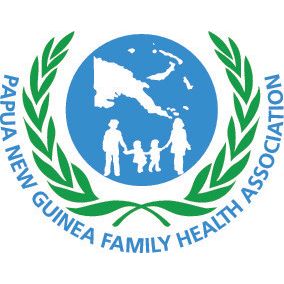

| 31 March 2016
Palestinian Family Planning and Protection Association (PFPPA)
Established in Jerusalem in 1964, the Palestinian Family Planning and Protection Association (PFPPA) is locally registered as an independent, non-profit and non-governmental associations with its headquarter office being in Jerusalem. According to PFPPA’s 2016- 2022 Strategic plan, it aims to: Modify policies and decisions to respect Sexual Reproductive Health Rights (SRHR) and gender equity. Provide information for people to make well informed decision and choices regarding their SRHR. Deliver rights based, high quality integrated SRH services. Enhance the association is high performing, efficient, transparent and accountable. PFPPA has service delivery points, located in the West Bank Areas of Ramallah, Bethlehem, Hebron and Halhoul, in addition to one in the Gaza Strip. Furthermore, and in cooperation with local partners PFPPA is also responsible for 5 safe spaces to provide Gender Based Violence (GBV) related services in the Jerusalem area. PFPPA is known for the provision of comprehensive and diverse services, mainly related to: Sexual and reproductive health services (including that related to GBV), particularly for girls and women. Demand generation and mobile medical team activities reaching the most marginalized groups and areas. Raising awareness on SRH including comprehensive sexuality education (in and out of schools). Mobilizing activists and civil society actors to advocate for reforming laws that advance SRH and influence national policy. Conducting applied national studies related to unmet SRH needs. Training for young leaders, staff, service providers and community leaders from local governmental and non-governmental organizations. In the past two years alone, PFPPA has been able to reach nearly 190,000 clients with over 850,000 services, over 80% being poor and vulnerable and over 85% being female also noting the vast majority being served within a humanitarian context.

| 09 December 2020
Papua New Guinea Family Health Association
The Papua New Guinea Family Health Association (PNGFHA) was established in 1981 and registered in the same year under Section 7 of the Associations Incorporation Act, Papua New Guinea. PNGFHA became an IPPF Collaborative Partner in 2001 and then an Associate Member, approved at the December 2020 Board of Trustees meeting. The Association's Head Office was originally based in Lae, Morobe, but was relocated to the capital Port Moresby, in 2015. PNGFHA currently operates across 8 static clinics in Port Moresby (3), Lae, Markham and Bulolo (Morobe Province), Goroka (Eastern Highlands Province), and Kokopo (East New Britain Province), and are operated from facilities provided either by the Provincial Health or the district authorities. PNGFHA has a staff of 25, both clinical and non-clinical, and is supported by an extensive network of volunteers. Each clinic has regular outreach services to remote populations, providing safe and confidential SRH services and raising awareness. In 2021, PNGFHA delivered 220,038 SRH services to 53,497 clients, more than 90 per cent of whom were poor/ vulnerable. The clinics provide a wide range of SRH services including STI and HIV awareness, family planning, responding to cases of gender-based violence, and counselling. Legal services for survivors of sexual and gender-based violence (SGBV) are also provided due to need. Other programs include the youth/adolescence comprehensive sexuality education with out-of-school and in-school youths. Various outreach programs such as mobile clinics and awareness have also been implemented in partnership with local Provincial Health authorities. Currently PNGFHA have 3 furnished operational youth centres and youth clinic which provide support for the youth volunteer network, community outreach, CSE both in and out of school. Youth friendly spaces offer youth the opportunity to access information, receive counselling and a friendly safe space where young people can meet and share ideas. The youth friendly clinic provides access to quality and relevant youth centred SRH services and referrals, in the case of SGBV, by staff that are sensitive and trained to dealing with young people. Outreach involves activities mostly identified by the young people themselves, ranging from awareness in a school settings and communities, during a community event, community and government organised activities such as cultural shows and sports events. Through outreach events, trained youths are able to reach out to their peers and motivate them to access more information and services.







